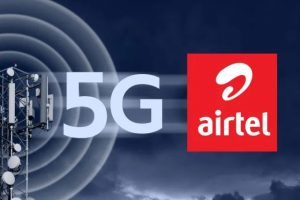By Alexander Chiejina
With the introduction of the 5G mobile network, Airtel Nigeria has sparked competition among telecom players in Nigeria. This move is aimed at increasing Airtel’s market share and draw in new clients.
Customers of Airtel can access fixed services using a 5G-compatible router or mobile services using a 5G-capable smartphone or tablet. Customers will receive a one-time bonus of 10GB data once they have activated a device on the Airtel 5G network. Although the service will soon be expanded, it will initially only be offered in Abuja, Lagos, and Port Harcourt.
Airtel became the third telecom provider in Nigeria to be granted a license for this cutting-edge technology. The first two batches of 100 MHz TDD slots in the 3.5 GHz spectrum were reserved in 2021 by MTN Nigeria and Mafab Nigeria Communications Limited.

The NCC (Nigerian Communications Commission) held a second auction for 3.5GHz airwaves in December 2022, and Airtel was the only operator to participate, gaining 100MHz in the band. It acquired a further 2x10MHz in the 2600MHz range the next month.
As you may remember, Airtel revealed earlier in 2023 that it has purchased extra airwaves for its 4G network as well as a 5G spectrum. $316.7 million was a large investment in this deal.
Airtel now holds a 27.01 percent market share of the country’s mobile subscriber base, according to recent data given by the Nigeria Communication Commission (NCC), while rivals 9mobile, Globacom, and MTN hold market shares of 6 percent, 27.28 percent, and 39.70 percent, respectively.
By boosting internet uptake, it is anticipated that the rollout of Airtel’s 5G network will support the Nigerian Communications Commission’s aspirations for a digital transformation. Additionally, it would help the NCC get closer to meeting the objective outlined in Nigeria’s National Broadband Plan (2020–2025).








